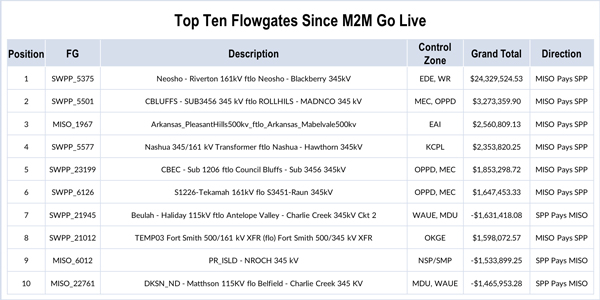SPP has scheduled an executive session of its Board of Directors and Members Committee for Tuesday to discuss admitting Mountain West Transmission Group’s members into the RTO.
The meeting is being held at an undisclosed location. SPP has often used Dallas/Fort Worth International Airport to meet for its ease of access and onsite hospitality facilities.
SPP CEO Nick Brown told the Board of Directors in January the RTO was hoping to hold a “decision meeting” for members at the end of February for those stakeholders “who need to engage outside counsel and consultants, who previously were not engaged in the debate.”
SPP and Mountain West members have been meeting behind closed doors since October. SPP COO Carl Monroe told stakeholders in January that a small negotiating team had been working to resolve a subset of “real contentious” issues. The Mountain West entities have suggested several governance changes important to their side of the footprint. (See SPP, Mountain West Resolving ‘Contentious’ Issues.)
Brown said SPP’s primary goal for 2018 is integrating Mountain West. “Our goal is to get it over the line in early 2018,” he said.
With members primarily serving Colorado, Wyoming and Nebraska, Mountain West began discussing joining or creating an RTO in 2013. It announced in January 2017 it was pursuing membership in SPP, and discussions entered a public phase in October. (See SPP, Mountain West Integration Work Goes Public.)
The two entities are working on an Oct. 1, 2019, target date for membership.
Record $6.9M in January for Market-to-Market Payment
SPP’s Riverton-Neosho-Blackberry flowgate — quickly becoming recognized by just its 5375 ID — was binding for 350 hours in January, resulting in a record $6.9 million market-to-market (M2M) payment from MISO. The Kansas-Missouri border flowgate was responsible for $6.2 million of the charges, more than all the flowgates combined in any other single month.
SPP has accumulated almost $44 million in M2M payments since the two RTOs began the process in March 2015. MISO has not had a month in its favor since last July and only nine overall.
SPP staff told the Seams Steering Committee on March 7 that they have been implementing an “enhanced shadow price override” non-monitoring RTO process on swing-related flowgates since Jan. 4. The two RTOs are also considering implementing a “monitoring RTO reverse role,” where MISO would control the physical flow on a flowgate and SPP control the market flow.
Permanent and temporary flowgates were binding for 632 hours in January, SPP staff told the committee.
Staff also briefed the committee on FERC’s April 3-4 technical conference related to how SPP, MISO and PJM coordinate generator interconnection studies on projects near their seams. The commission called the conference to address issues raised in an October complaint by EDF Renewable Energy, which contends that inconsistencies and a lack of clarity in the RTOs’ rules for “affected systems” interferes with developers’ ability to judge the commercial viability of proposed projects. (See FERC Orders Review of PJM, MISO, SPP Generator Studies.)
SPP, AECI Wait on Joint Study Scope
SPP and Associated Electric Cooperative Inc. last week failed to reach an agreement with their stakeholders on a scope for a 2018 joint study during an Interregional Planning Stakeholder Advisory Committee meeting. Another IPSAC will likely be scheduled in a few weeks, giving members a chance to review the draft scope with their companies and providing staff additional time to revise its models.
SPP staff said they had drafted a scope that identified needs from its 2018 near-term assessment that are “electrically significant to the SPP-AECI seam.”
The RTO plans to use its near-term assessment models, which have already been approved by its stakeholders. AECI regularly participates in the near-term model-building process, which allows the two entities “to explore a broader set of projects which could potentially provide benefit to both systems,” SPP staff said.
— Tom Kleckner






